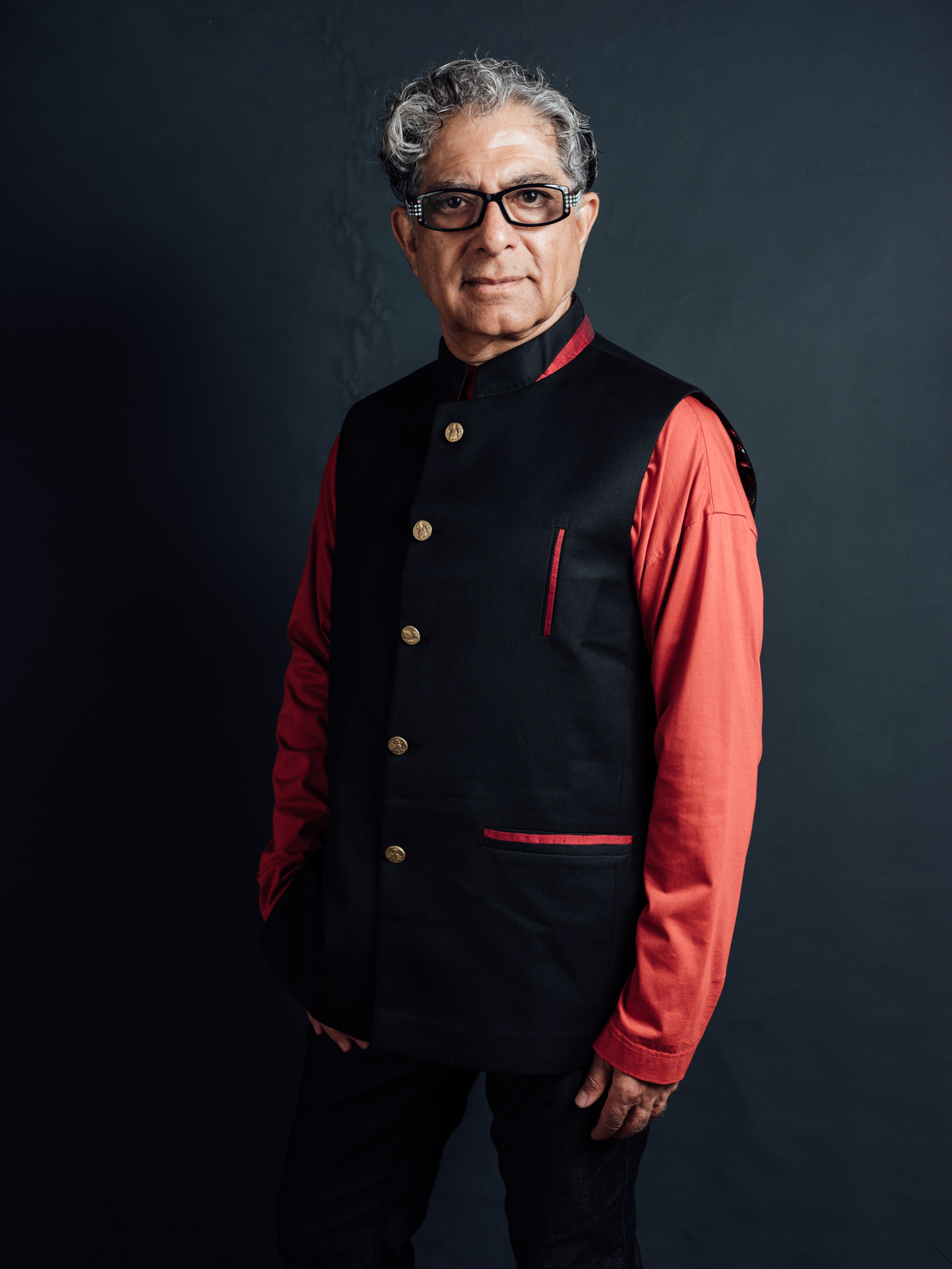
At 73, Deepak Chopra is in what he calls “the final season” of his life. “I have no medical issues whatsoever, but nevertheless, when you get to a certain age, your next chapter is going to be death,” he says. But rather than slowing down, the trained internist, alternative medicine advocate and meditation expert says he feels an urgency to communicate what he’s come to understand over the years.
In the case of his new book, Metahuman: Unleashing Your Infinite Potential, it’s how we can “go beyond” human constructs to get in touch with our innate beings. “Human constructs are very necessary to have, but we forget that they are constructs, that money is a construct, latitude and longitude is a construct, that nation-states are human constructs,” he says. These constructs, he argues in his book, should not wholly define our experience in this world. “Going beyond is how a person decides if life is meaningful enough,” he writes. “When you want more than your life is giving you, it’s not your brain that craves more meaning, nor is it the everyday person going about the routine business of life. The self, viewing things from a higher perspective, is deciding the matter.”
Chopra believes that if more people become “metahuman” and embrace self-awareness, they will be able to work together to create a better world. He spoke to TIME about how we get there, or at least start the journey.
TIME: This is your 90th book. Where does the motivation come from to write another after you’ve written so many?
The impetus of this book was looking at what our collective mind has created: climate change, extinction of species, poison in our food chain, mechanized debt, nuclear weapons, biological warfare, interference with democracies through internet hacking. And seriously, it looks like we’re planning our extinction right now. And nobody’s actually confronting the nightmare.
How can being metahuman help with some of the aspects of the “nightmare,” like climate change?
We do have the technologies to reverse these trends already. You can ask any expert. But do we have the collective will? I think that requires a spiritual shift. Is it possible for us to collectively wake up to the fact that what we’ve created is a nightmare? Can we move in a direction that is more peaceful? Is it possible for us, collectively, to create a sustainable, healthier and more joyful world?
What is the first step someone who wants to become metahuman should take?
Start with a very simple contemplative meditation practice whether it’s mindfulness, body awareness, awareness of perceptual experience or awareness of your mental space. I would also say a little bit of contemplative inquiry: “Who am I?” “What do I want from my life?” “What is my purpose?” “What am I grateful for?” When people start a journey of self-inquiry, it automatically leads to deeper insight.
In the last section of the book, you offer 31 days worth of lessons for anyone looking to become metahuman. Is that enough time?
I’m trying that out right now. I’m on an experiment on my podcast, and I’m seeing people’s responses and learning a lot from that. The 31 days definitely starts people on the journey, if they are curious.
When people are overwhelmed, whether it’s because of a news headline or an event in their personal life, what actions can they take to help alleviate those feelings?
I think what anyone can do in the moment is to stop and take a few deep breaths and proceed with awareness and compassion rather than reactivity, which is often manipulation by being nasty or being manipulative by being nice or playing the victim or withdrawing. You look at all the national leaders of the world right now — they’re all gangsters and thugs because they are constantly manipulating everybody for their own selfish reasons.
What do you say to people who might not see the connection between destruction and climate change and being metahuman?
I don’t know what to say to them. They are in denial. Yesterday I was with my grandkids and they have more intelligence than 99% of people who are considered leaders in the world. The millennials and even Gen-Z are definitely our only hope and it’s our responsibility to not let them down.
How do you stay focused in such an overstimulated world?
The overstimulation is what is distracting us from knowing ourselves. I spend a lot of time, more than 50% of my time in New York City, and I thrive. I love the dynamism of city life as long as I keep my center on my identity and not that which I’m experiencing. That is my inner stillness.
What do you say to those who think there’s not enough time to stop, think and contemplate before reacting to what’s going on?
Those are the very people that need help. Those are the very people who will one day say, “Life went by and all I did was get busy.” I’ve never heard, as a doctor, a patient say to me “I wish I worked harder or spent more time at the office.”
More Must-Reads from TIME
- Cybersecurity Experts Are Sounding the Alarm on DOGE
- Meet the 2025 Women of the Year
- The Harsh Truth About Disability Inclusion
- Why Do More Young Adults Have Cancer?
- Colman Domingo Leads With Radical Love
- How to Get Better at Doing Things Alone
- Michelle Zauner Stares Down the Darkness
Write to Annabel Gutterman at annabel.gutterman@time.com